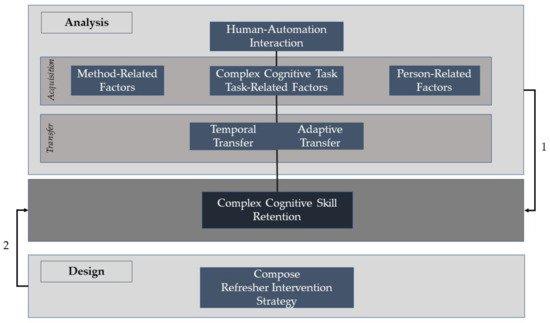 The article: Factors Influencing Attenuating Skill Decay in High-Risk Industries: A Scoping Review, by Stephanie Conein, Thomas Felkl, Annette Kluge and myself was published in the Special Issue Safety and Occupational Goal Conflicts: Cause and Effect of Work-Safety Tension on Safety-Related Risky Decision Making in Safety-MDPI a few days ago.
The article: Factors Influencing Attenuating Skill Decay in High-Risk Industries: A Scoping Review, by Stephanie Conein, Thomas Felkl, Annette Kluge and myself was published in the Special Issue Safety and Occupational Goal Conflicts: Cause and Effect of Work-Safety Tension on Safety-Related Risky Decision Making in Safety-MDPI a few days ago.
We looked at skills that were formerly learned but infrequent used in highly automated environments. In high-risk industries (e.g., chemical power plants, aviation, maritime) this can have serious consequences. We analyzed previous research (n = 58 documents) in this field in order to answer the question how skill decay in non-routine situations in high-risk, highly automated environments can be reduced. It has been shown that the cognitive load associated with the task, the type of training, as well as person-related factors (e.g., experience, retentivity) are relevant in mitigating skill decay.
Interesting implications can be derived for the implementation of training and refresher interventions to attenuate skill decay, especially in high-risk sectors.
If you are interested, the article can be retrieved open access by clicking on one of the following links:


